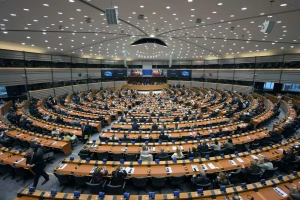According to St. Thomas, freedom is the human capacity that unifies all other capacities into an ordered whole and directs our actions in pursuit of goodness and happiness.
To achieve freedom, one must understand man’s ability to be good and happy. For this reason, the concept of human dignity is highly relevant, since it is the foundation under which freedom is given, and which makes us worthy of being treated as such: beings endowed with the same degree of intelligence and will.
Despite the circumstances, we have all been destined to fulfill a totally different and unique mission. To complete the mission we enjoy freedom, that is to say, take responsibility for our actions in a virtuous way. If this were not fulfilled, and freedom for excellence was not aligned with human dignity, man would be a slave condemned to vice who has not found the meaning of his life, and therefore would not be able to perfect himself.
As a consequence, despite not losing his dignity, he degrades his own person and may contribute to others doing so either because he promotes him under something good or because his own behavior is taken as an example. But what if we find ourselves in a circumstance where it is not necessary to seek excellence because there is no freedom?
Before delving into the answer, we must remember that freedom is inherent to the person, that is, it is born and dies with it. Even under the worst circumstances one has control over his thoughts and feelings, because he decides which position to take, one of hope or one of defeat. To choose one or the other there is always a reason that arises from the reflection of oneself taking into account our past, present and future.
The result of that internal conversation is what defines the action plan to follow and goes beyond theoretically knowing concepts such as our dignity, because many times people are not clear about it. An example of this is the book “MAN IN SEARCH OF MEANING”. Although Frankl understood a lot about philosophy, anthropology and other sciences, other people who survived did not, on the contrary, they had totally different professions. However, the probabilities were greater for those who did more mental than operational work, as indicated in certain lines. This is due to a better understanding of life itself, because when we find that meaning, intelligence traces a mental survival strategy that allows the body to withstand fatigue and, together with motivation, constantly reminds us of the greater purpose for which we have been destined. This not only supposes the fact of staying alive, but of continuing to perfect ourselves.
Published: March 31, 2022
Written by Almendra Vallejos, WYA Latin America intern.




